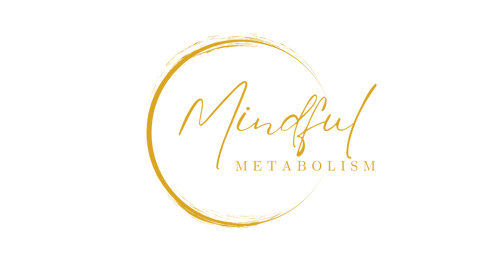Everything You’ve Been Told About Calories Is Wrong – Here’s Why
Not all calories are created equal—your body isn’t a simple maths equation. The foods you eat directly influence hormones, metabolism, and fat storage. Discover why some calories are more fattening than others—and why the outdated 'calories in, calories out' model is holding you back.
Benjamin Tuckley
4 min read


Why "Calories In, Calories Out" Is Misleading
For years, we've been told that weight loss is simple—just eat fewer calories than you burn. But if that were true, why do so many people struggle to lose weight, even when following strict calorie-controlled diets?
The truth is, not all calories are processed the same way by your body. The type of food you eat affects hormones, metabolism, and fat storage—meaning that two people eating the same number of calories can have completely different results.
In this blog, we’ll break down why calories alone don’t determine fat loss, why metabolism matters more than calorie counting, and how to optimise your diet for sustainable fat burning.
Why Calories Aren’t Equal: The Key Factors That Matter More
1. Hormones Control How Your Body Uses Calories
Calories don’t act in isolation—hormones decide whether those calories are burned for energy or stored as fat. The biggest hormone influencing fat storage? Insulin.
Insulin’s primary job is to store energy. When insulin is present, your body gets a clear signal: "Store this energy as fat." This is why insulin is often called the fat-storing hormone—it locks energy into fat cells, preventing fat-burning while it's elevated.
High Insulin = Fat Storage Mode
Low Insulin = Fat-Burning Mode
Insulin Resistance Makes Calorie Deficits Less Effective
If someone is insulin resistant, their body is less efficient at burning fat—even in a calorie deficit.
High insulin locks fat inside fat cells, making it hard to lose weight even when "eating less".
Chronically high insulin = metabolic dysfunction, meaning the body burns sugar instead of stored fat.
Lowering carbs & processed foods reverses insulin resistance, making fat loss easier.
Key Takeaway: You can be in a calorie deficit and STILL struggle to lose fat if insulin resistance is blocking fat-burning. Weight loss isn’t just about "eating less"—it’s about keeping insulin low so your body stays in fat-burning mode.
2. Different Foods Have Different Metabolic Effects
Calories don’t tell the whole story. The type of food you eat determines whether your body burns fat or stores it. Your body doesn’t process 100 calories of cake the same way it processes 100 calories of steak—because food affects hormones, metabolism, and hunger differently. Yes, read that again. You've been lied to this entire time.
100 calories of cake is absolutely more fattening than 100 calories of steak! Yet, most people don’t realise how different foods impact the body beyond just calories.
Protein (like steak) keeps insulin low & boosts metabolism
Protein has the highest thermic effect (TEF) of food, meaning your body burns more calories digesting it compared to carbs or fats.
Steak keeps insulin low, allowing your body to stay in fat-burning mode rather than storing fat.
Sugar & refined carbs trigger fat storage & cravings
When you eat carbs and sugar (like cake!), insulin spikes, promoting fat storage and leading to blood sugar crashes.
To make matters worse, this disrupts hunger hormones (ghrelin and leptin), increasing cravings and making it harder to stay in a calorie deficit.
Healthy fats keep you full & stabilise blood sugar
Fat slows digestion, keeping you full for longer.
Stable blood sugar prevents cravings and overeating, making fat loss easier
3. Processed Foods vs. Whole Foods: Same Calories, Different Results
A meal of steak, eggs, and avocado fuels your body completely differently than a meal of cereal, toast, and juice—even if both meals have the same calories.
Whole foods provide nutrients that support fat-burning and muscle maintenance.
Ultra-processed foods disrupt metabolism, increase cravings, and promote fat storage through hormone dysregulation and inflammation.
Seed oils (vegetable oils) increase inflammation, making fat loss harder.
Key Takeaway: The source of your calories matters just as much—if not more—than the total number of calories consumed.
4. Muscle Mass Determines Metabolic Rate
One of the biggest weight loss mistakes? Ignoring muscle mass.
Muscle burns more calories than fat—even at rest.
Extreme calorie-cutting leads to muscle loss, making long-term fat loss harder.
Eating enough protein & strength training protects muscle, keeping metabolism high.
Key Takeaway: Fat loss isn't just about eating less—it’s about protecting muscle to keep your metabolism running efficiently.
Final Thoughts: Calories Matter, But Metabolism Matters More
Calories still play a role, but they’re not the full story. The quality of your food and how it affects hormones, metabolism, and fat storage is far more important than just eating less.
If you’re tired of calorie counting and still struggling with fat loss, it’s time to shift the focus to metabolic health.
Lose Fat Without Obsessing Over Calories
If you’re ready to take a more sustainable, stress-free approach to fat loss, my coaching community can help. Learn how to work with your metabolism, not against it, so you can reach your goals without rigid tracking or frustration.
The Mindful Metabolism Programme is a 16-week metabolic reset designed to clear out inflammation, rebalance hormones, and give your body a fresh starting point.
When you join, you’ll get:
✔ Personalised guidance tailored to your body’s needs
✔ A step-by-step plan to balance hormones and support long-term success
✔ Ongoing coaching and accountability to keep you on track
✔ A like-minded community of individuals on the same journey, offering motivation, insights, and encouragement
Click below to learn more and see if it’s the right fit for you.
Currently 70% Off – If you’re ready to take control of your health, now is the perfect time to join.
Disclaimer: This blog is for educational purposes only and is not intended as a substitute for medical advice.
Health
Learn about metabolism, hormones, and inflammation.
Support
Benjamin@learnmetabolism.com
© 2024. All rights reserved.
